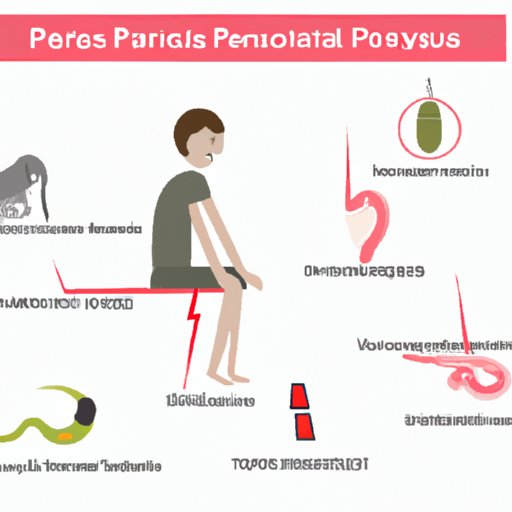
Introduction
Parasites are organisms that thrive and live on or inside other organisms called hosts. Unfortunately, humans can be hosts to various types of parasites that can cause illnesses, ranging from mild to severe. It is essential to understand how parasites are transmitted and the common sources to prevent infection and keep ourselves healthy.
Common Sources of Parasites
Contaminated food or water is a primary source of parasites.
Parasites are tiny organisms that can be found in contaminated food and water. They can cause various illnesses, including diarrhea, abdominal cramps, and vomiting, among others. Eating raw or undercooked meat could expose you to tapeworms, which can lead to weight loss, abdominal discomfort, and fatigue. Consuming contaminated water could infect you with Giardia or Cryptosporidium, which can cause diarrhea, stomach pain, and dehydration.
Exposure to animal feces and poor hygiene practices can cause parasitic infections.
Feces from animals, such as dogs, cats, and livestock, can contain parasites such as roundworms, hookworms, and Toxoplasma. These parasites can infect humans when we come into contact with animal feces or touch surfaces contaminated with feces. Poor hygiene practices like not washing hands after handling pets, cleaning litter boxes, or changing diapers could increase our risk of infection.
Transmission through Insect Bites
How mosquitoes and ticks can transmit parasites to humans through bites.
Mosquitoes and ticks are common vectors of parasites that can cause diseases like Malaria, Chagas disease, and Lyme disease. These parasites enter our bloodstream when the mosquito or tick bites and feed on us. It is important to take precautions to avoid getting bitten by these insects, like wearing long-sleeved shirts and pants, using mosquito nets while sleeping, and using insect repellent with DEET.
Exposure to Contaminated Soil
Contaminated soil can contain parasites and lead to infection.
Parasites like Toxocara can live in soil contaminated with dog or cat feces. Walking barefoot or playing in contaminated soil could expose us to these parasites, leading to illnesses like visceral larva migrans. Proper hygiene like washing hands after outdoor activities and avoiding playing in areas with animal feces could reduce the risk of infection.
Contact with Infected Animals
Pets and stray animals can transmit parasites to humans
Having pets and being exposed to stray animals could increase our risk of getting parasites. Animals can carry parasites like hookworms, tapeworms, and roundworms, which can infect humans through direct contact or indirectly through contaminated surfaces. Regularly deworming pets and avoiding contact with stray animals is essential to keep ourselves and our pets healthy.
Travel-Related Risks
Parasites are more prevalent in certain parts of the world.
Traveling to certain parts of the world might increase our risk of contracting parasites. Food and water contamination is prevalent in developing countries, and vector-borne diseases like Malaria and Dengue fever are common in tropical and subtropical regions. It is crucial to take preventive measures like drinking bottled or boiled water, eating well-cooked food, and using insect repellent while traveling.
High-Risk Groups
Certain groups are more vulnerable to parasites.
Children, pregnant women, and people with weakened immune systems, HIV/AIDS, or cancer are at a higher risk of contracting parasites. These groups should take extra precautions like cooking meat thoroughly, avoiding contact with animal feces, and avoiding contaminated soil.
Symptoms and Treatment
Common symptoms of parasitic infections
Symptoms of parasitic infections vary depending on the type of parasite and the infection’s severity. Common symptoms include diarrhea, abdominal pain, bloating, cramps, and fever. Some parasites live in our bodies for years without showing any symptoms.
Available treatments for different types of parasites
The treatment for parasitic infections depends on the type of parasite and the severity of the illness. Common treatments include antiparasitic medications and antibiotics. It is essential to seek medical attention if you suspect you have a parasitic infection to ensure proper diagnosis and treatment.
Conclusion
Parasites are organisms that can cause many illnesses, ranging from mild to severe. We can avoid infection by taking adequate preventive measures like washing hands, cooking meat thoroughly, and avoiding contact with animal feces. Knowing the common sources and transmission methods of parasites is essential to keep ourselves and our loved ones healthy.





